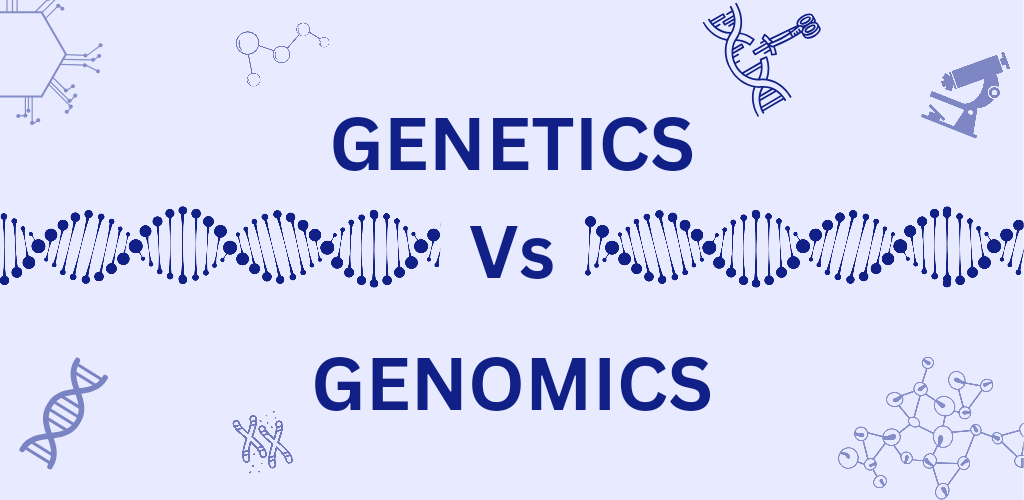Genetic Testing for Hypertension: A New Frontier in Cardiovascular Care
Hypertension, often dubbed the “silent killer,” remains one of the most prevalent causes of premature death worldwide. While lifestyle and environmental factors have long been known contributors, the last decade has pulled back the curtain on a deeper culprit—our DNA. With the rise of hypertension DNA tests, medicine is entering an era where we no longer treat high blood pressure as a one-size-fits-all condition. Instead, the future of cardiovascular care is being rewritten by genomic science and personalized risk assessment.
Why Genes Matter in High Blood Pressure
Traditional methods of diagnosing and treating hypertension have focused on clinical measurements, patient history, and lifestyle assessments. However, mounting evidence reveals that genetic predisposition plays a significant role. Genome-wide association studies (GWAS) involving over a million individuals of European descent have uncovered more than 2,000 independent genetic signals associated with blood pressure regulation. These discoveries account for nearly 40% of the SNP heritability of systolic and diastolic blood pressure—an astonishing leap in understanding the roots of the condition (1).
Such insights pave the way for genetic blood pressure tests that identify individuals who may be at elevated risk even before symptoms emerge. Polygenic risk scores (PRS), which compile the effects of numerous genetic markers, now allow clinicians to stratify patients based on inherited risk. In comparative studies, individuals in the highest risk decile exhibited an average systolic blood pressure that was 12.9 mm Hg higher than those in the lowest decile, alongside significantly elevated hypertension and cardiovascular disease risks (1, 3).
From Risk to Response: Clinical Potential of DNA-Based Screening
The practical implication of high blood pressure DNA screening goes beyond detection. It introduces a dynamic approach to prevention and management. By combining PRS with clinical factors like age, sex, and BMI, the predictive accuracy of hypertension risk models significantly improves. For example, incorporating genetic risk scores raised the diagnostic precision of such models from an AUC of 0.791 to 0.814, a statistically meaningful gain (1).
This enhancement enables targeted interventions. Patients flagged as high-risk through personalized hypertension risk tests can benefit from earlier lifestyle adjustments, more aggressive monitoring, or pharmacological therapy customized to their genetic profile. This tailored strategy, grounded in the science of cardiovascular genomics for hypertension, helps prevent complications like stroke, heart failure, and kidney disease before they take root.
Genetic Targets, Drug Development, and Precision Therapy
Genomic research does more than assess risk—it also opens up novel therapeutic avenues. Key genes such as NPR1 and PHACTR1 have been identified as regulators of blood pressure through GWAS and functional studies. These genes are now being explored as drug targets, with NPR1 agonists already in clinical trials and EDNRA antagonists under development to counter endothelin pathway dysfunction (3).
In addition to pioneering new drugs, researchers are repurposing existing ones based on genetic insights. For instance, SLC5A1, previously known for its role in diabetes management, is now being explored for its potential in hypertension therapy. This fusion of DNA markers for hypertension with pharmacogenomics is fast-tracking the evolution of truly personalized treatment strategies (3).
Bridging Gaps: Counseling, Equity, and Clinical Integration
While the science progresses rapidly, challenges remain in translating it into clinical reality. Many healthcare providers still lack familiarity with interpreting genetic test results and incorporating them into routine cardiovascular care. Moreover, most large-scale genomic studies have focused on populations of European ancestry, creating a gap in applicability for other ethnic groups (2, 3).
To overcome these barriers, it is essential to train clinicians in genetic literacy and expand research cohorts to include more diverse populations. Genetic counseling will also play a critical role in guiding patients through complex information and the emotional implications of risk disclosure. As genetic engineering technologies continue to evolve, particularly with CRISPR and advanced diagnostics, equitable access must remain a central focus of policy and practice.
Redefining the Future of Cardiovascular Health
We are on the cusp of a medical transformation. What was once managed reactively—often after years of damage—can now be anticipated and addressed proactively through genomic science. The implementation of genetic blood pressure tests, comprehensive risk models, and genome-informed therapies represents more than innovation—it marks a shift in mindset.
Cardiovascular disease prevention is no longer confined to broad recommendations. It is becoming individualized, data-driven, and biologically precise. This is the promise of personalized hypertension risk testing—a future where each patient’s genetic code becomes a roadmap for healthier living.
Conclusion
The intersection of genetics and hypertension care signals a new era of precision medicine. Through large-scale studies, functional gene discovery, and the development of clinical-grade risk tools, we are moving closer to a world where blood pressure management begins in the genome. By integrating hypertension DNA tests, understanding DNA markers for hypertension, and deploying cardiovascular genomics for hypertension, healthcare can shift from reactive treatment to proactive prevention—saving lives, reducing costs, and reshaping public health.
The challenge ahead lies not in the science, which is advancing at an extraordinary pace, but in ensuring these breakthroughs reach every patient, every clinic, and every corner of the world. With commitment, collaboration, and continuous innovation, the genetic future of cardiovascular care is within reach.
References:
- Warren, H., Edwards, T., Vaez, A., Keaton, J., Kamali, Z., Xie, T., Ani, A., Evangelou, E., Hellwege, J., Yengo, L., Young, W., Traylor, M., Giri, A., Visscher, P., Chasman, D., Morris, A., Caulfield, M., Hwang, S., Kooner, J., . . . Snieder, H. (2022). Genome-wide analysis in over 1 million individuals reveals over 2,000 independent genetic signals for blood pressure. Research Square (Research Square). https://doi.org/10.21203/rs.3.rs-1409164/v1
- Musunuru, K., Hershberger, R. E., Day, S. M., Klinedinst, N. J., Landstrom, A. P., Parikh, V. N., Prakash, S., Semsarian, C., & Sturm, A. C. (2020). Genetic testing for inherited cardiovascular diseases: A scientific statement from the American Heart Association. Circulation Genomic and Precision Medicine, 13(4). https://doi.org/10.1161/hcg.0000000000000067
- Olczak, K. J., Taylor‐Bateman, V., Nicholls, H. L., Traylor, M., Cabrera, C. P., & Munroe, P. B. (2021). Hypertension genetics past, present and future applications. Journal of Internal Medicine, 290(6), 1130–1152. https://doi.org/10.1111/joim.13352
- Sousa, A., Moldovan, O., Lebreiro, A., Bourbon, M., António, N., Rato, Q., Rodrigues, P., Toste, A., Rocha, M. G., Oliveira, R., Granja, S., Cruz, C., Almeida, J., & Martins, E. (2020). Recommendations for genetic testing in cardiology: Review of major international guidelines. Revista Portuguesa De Cardiologia (English Edition), 39(10), 597–610. https://doi.org/10.1016/j.repce.2020.03.008




